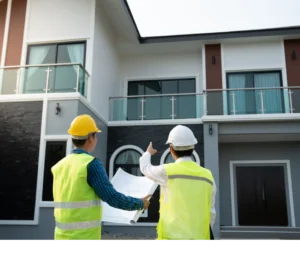Addressing Age in Fair Housing Compliance

Training for the Gray Areas
In the world of property management, training often zeroes in on the familiar—race, disability, familial status. But what about age? While not a federally protected class under the Fair Housing Act, age continues to show up in housing-related decisions, marketing language, and resident interactions. For compliance professionals and property managers, the absence of federal protection doesn’t mean a free pass. Instead, it signals an opportunity to refine staff training and tighten internal policy to prevent unintentional bias.
When Age Isn’t Protected—But Still Matters
The Fair Housing Act doesn’t include age as a protected category, which can create a false sense of security. Teams may think, “If it’s not federally regulated, we’re in the clear.” But that’s a risky mindset. States and local municipalities across the country have filled in that legal gap by adding age as a protected class in their own civil rights or housing codes.
If you’re developing or delivering fair housing training, this nuance needs to be front and center. Policies or preferences that appear neutral—like marketing to “working professionals” or “retirees”—could trigger compliance issues in states that recognize age-based protections.
Federal Funding Raises the Stakes
Properties that receive federal funding or subsidies operate under another set of rules. The Age Discrimination Act of 1975 prohibits age discrimination in federally supported programs. Even if your staff is familiar with the Fair Housing Act, they may not be aware of how these layered protections work. A key part of staff onboarding and continuing education should include understanding how different laws intersect and apply in federally supported housing communities.
Age-Adjacent Pitfalls: The Training Gap
The danger with age-based decisions isn’t always blatant. A leasing agent might casually mention that a unit is “ideal for an older couple,” or that “young families may prefer something more spacious.” These comments, while seemingly harmless, can easily be interpreted as steering—especially if they intersect with familial status, a federally protected class.
Fair housing education must emphasize how subtle, subjective language can lead to discriminatory practices. And without proper training, staff may be unaware that they’re treading into legally questionable territory. In today’s regulatory environment, good intentions are not a defense. Training should focus on clarity, consistency, and the importance of neutral language.
Older Adult Communities Require Clear Policy and Proof
Some communities are legitimately designed for older residents and can legally restrict families with children—but only if they meet specific criteria under the Housing for Older Persons Act (HOPA). This exemption doesn’t happen automatically. Staff should be trained to understand what documentation is needed to prove compliance, how to advertise appropriately, and why vague marketing language can undermine legal protections.
“55 and older” is more than a tagline—it’s a legal threshold that comes with specific obligations. If your team isn’t trained to recognize the requirements, your community may unintentionally misrepresent its legal status and put your property at risk.
Managing the Legal Patchwork: Empowering Local Knowledge
Because age protections vary so widely across jurisdictions, training can’t rely on a one-size-fits-all approach. Staff must be taught how to access and understand local housing laws. This is where property managers and HR leaders play a pivotal role—by reinforcing the expectation that teams stay informed about both federal and local obligations.
Even better? Build this flexibility into your policies. Instead of focusing solely on what’s legal, focus on what’s fair. Inclusive housing practices don’t just prevent violations—they strengthen community trust and enhance your company’s reputation.
Make Age Awareness a Core Training Topic
Age isn’t always front-of-mind during fair housing training—but it should be. Even when not explicitly protected, age-based assumptions and language can creep into housing decisions in ways that carry legal and ethical risks. By proactively addressing age-related concerns in your staff education, marketing policies, and resident interactions, you’re creating a stronger foundation for compliance—and for community.
Because when we say “fair housing,” it should apply to everyone—no matter their age.













 Accessibility
Accessibility